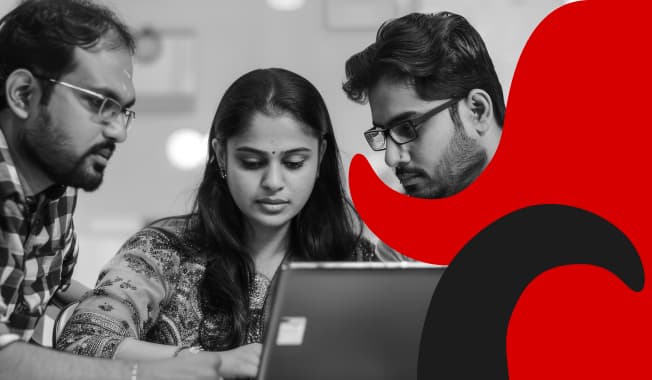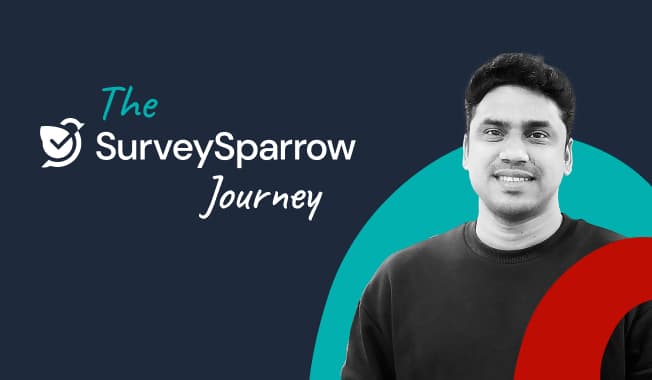Is Kerala India's Micro SaaS Capital?
Article written by
Vipin Thomas

SHARE THIS ARTICLE
Summary
Kerala is quietly emerging as India's Micro SaaS Capital. With bootstrapped startups, global reach, and a lifestyle-first mindset, builders here are redefining what success looks like in tech. This post explores real examples, ecosystem stats, and why Kerala’s “small but smart” model could be the future of software entrepreneurship in India.
A Newcomer's Observations on Kerala's Tech Ecosystem
When I moved to Kerala, I expected beautiful beaches, great food, and maybe a small tech scene. What I found instead completely changed how I think about building software businesses in India.
After months of talking to founders, joining communities, and digging into the numbers, I keep coming back to one question: Has Kerala quietly become the Micro SaaS Capital of India?
This isn't about putting Kerala in a box or saying it's somehow "less than" other tech hubs. It's about recognizing a smart strategy that might actually be the future of how we build software companies.
What Surprised Me When I Got Here
Coming from outside Kerala, some numbers really caught my attention. The Kerala Product Hunt (KPH) community—a WhatsApp group I discovered through local meetups—has been on fire lately. According to Felix, the founder of KPH, they're averaging 30 launches per month in the last 3 months, with 140 known launches just in the first 6 months of this year. Over 1,000 products have launched in the recent 2 years alone.
But here's what really caught my attention: Kerala's startup ecosystem grew 254% in value from 2021-2023, yet most of these companies aren't chasing billion-dollar valuations. Instead of trying to become the next Google or Facebook, Kerala's builders are creating small, profitable businesses run by just a handful of people. They're choosing a completely different path from other Indian tech hubs—and it's working.
What is Micro SaaS Anyway?
For those unfamiliar with the term, micro SaaS represents a different approach to building software companies:
- Solving one specific problem really well - Not trying to be everything for everyone
- Small teams (1-7 people) - Often just founders, no big offices or huge staff
- Bootstrapped, not VC-backed - Using their own money and customer revenue to grow
- Simple, focused products - Maybe just a plugin, a single tool, or one key feature
- Monthly subscriptions - Customers pay regularly, creating predictable income
- Quick to build and launch - Can go from idea to paying customers in weeks or months
- Low costs to run - No fancy offices, huge servers, or big marketing budgets
- Work from anywhere - Founders control their time and location
- Close to customers - Small enough to personally help users and quickly improve based on feedback
At first, I wondered: why stay small when you could grow big? The answer became clear—Kerala's entrepreneurs care more about freedom and quality of life than becoming the next tech giant.

What Makes Kerala Different
Moving here as an outsider, I noticed things locals might take for granted:
Making Do With Less: Kerala doesn't have many venture capitalists throwing money around. This sounds bad, but it's actually forced founders to build businesses that make money from day one. They create what customers will actually pay for, not what might impress investors.
Quiet Success: In other cities, I've seen founders constantly pitching and boasting. Here, builders prefer to let their products do the talking. KPH's motto—"ship first, perfect later"—shows this practical approach.
Think Global, Live Local: Kerala has India's highest literacy rate, and the strong emphasis on English education means developers here naturally build for the whole world. I've met people in Kochi coffee shops who have customers in 144 countries.
Real Success Stories That Opened My Eyes
My research turned up amazing examples that go against everything I thought I knew about startups:
- Micro.company completely changed how I see business. Founder Shyjal R. doesn't run just one product—he runs seven different micro SaaS tools including Collect.chat, which helps 25,000+ businesses worldwide with chatbots. The revenue from these products has given them financial freedom and the flexibility to work from anywhere. All this without taking a single rupee from investors.
- Hoppscotch blew my mind. What started as a side project is now used by millions of developers worldwide. With 70,000+ stars on GitHub, it proves you can build world-class products from Kerala's cafés. Founded by Liyas Thomas (Thrissur, Kerala) and Andrew Bastin (Kochi), Hoppscotch is an open-source API tool on GitHub and millions of global users
- BuyMeACoffee showed me how Kerala thinks globally from the start. Jijo Sunny, Joseph Sunny, and team from Kerala, built a platform that helps creators worldwide get paid by their fans—competing directly with Silicon Valley companies, all with a tiny team from Kochi.
- Chatwoot shows Kerala leading in open-source. Sojan Jose, Pranav Raj S, and Nithin David Thomas built an alternative to expensive customer chat tools that businesses can use for free. Thousands of companies use it because they care about privacy and want to customize their tools.

- DeshKeyboard (which makes Manglish.app) fascinated me as a perfect micro SaaS example. Built from Kochi by the ClusterDev team, Manglish.app is Kerala's flagship language keyboard, while DeshKeyboard offers keyboards for 10+ Indian languages. With over 20 million downloads and a powerful community, they've proven that solving "small" problems can have massive impact.
- Kolo.app found gold in a niche market. Co-founded by Jery Althaf from Kochi, this home and interior professional community originally launched in Kerala, quickly dominated the regional market, and then expanded beyond. They succeeded by focusing on a specific community that bigger companies overlooked.
- DataHut shows the power of focused solutions. Founded by Jezeel Muhammed and Tony Paul in Kochi, this web scraping and data extraction SaaS serves clients globally with a lean team. They help companies gather web data without building their own scraping infrastructure—classic micro SaaS approach.
- ScrapeHero is another Kerala success in the data space. Founded by Manu Chandra Prasad in Kochi, this micro SaaS has become an enterprise-grade data provider serving a global client base—proof that "micro" doesn't mean "small impact."
Through conversations with builders in the community, I kept hearing similar patterns: these founders started small, focused obsessively on specific problems, reached profitability quickly, and built businesses that generate substantial revenue without sacrificing personal freedom. The stories shared within Kerala's tight-knit tech community paint a consistent picture of this approach.

Infrastructure That Nobody Talks About
What really surprised me was finding world-class infrastructure hiding in plain sight:
- Technopark (Thiruvananthapuram): 490 companies, 75,000 employees, ₹13,255 crore in software exports (FY 2023-24) (Source)
- Infopark (Kochi): 582 companies, 70,000+ employees, ₹11,417 crore in IT exports (FY 2023-24)
- Cyberpark (Kozhikode): 100% full, 2,200 employees, ₹121 crore in exports
- Combined software exports from all Kerala IT parks hit ₹25,000 crore in FY 2023-24
- Over 6,200 active tech startups across the state (Source)
- Government putting ₹517.64 crore into IT development in the 2025-26 budget (Source)
But here's the key difference: this infrastructure supports a totally different way of working than Bangalore or Gurgaon. It helps people work independently from anywhere, not just in big office buildings.
Success Means Something Different Here
My biggest realization? Kerala defines success differently. While Chennai rightfully claims the "SaaS Capital" title with giants like Zoho, Kerala has built something just as valuable but completely different.
Success here means businesses that make money while letting you live a good life. It means working from a beach town or hill station while serving customers globally. It means building several small products instead of betting everything on one big idea.
This isn't about lacking ambition—it's about having different ambitions.
Why This Question Matters
Having seen tech scenes across India, I believe Kerala's approach isn't a compromise—it's evolution. While others burn through investor money chasing unicorn dreams, Kerala's builders have figured out something important: how to build profitable, global businesses that improve your life instead of taking it over.
The global SaaS market is exploding—worth about $400 billion in 2024 and heading towards $819-908 billion by 2030. Within this huge market, micro SaaS is growing fast, and Kerala's builders aren't just participating—they're showing others a new way to build software companies.
A Question Worth Asking
Chennai earned its place as India's SaaS Capital with companies like Zoho and Freshworks. That's a huge achievement that stands on its own. But maybe India's software story is big enough for multiple successes.
Based on what I've discovered as someone who came here with fresh eyes, I'm asking: Is Kerala the Micro SaaS Capital of India?
The evidence suggests it might be. But more importantly, the model Kerala has developed—building sustainable, profitable businesses that don't consume your life—offers lessons for entrepreneurs everywhere.
This isn't about regional competition or settling for less. It's about recognizing that the future of software entrepreneurship might look less like racing to billion-dollar valuations and more like what's quietly happening in Kerala's co-working spaces and coffee shops.

Building Together: The SaaS Spice Initiative
As part of this ecosystem, we at SaaS Spice are working to strengthen Kerala's SaaS community through practical knowledge sharing and real-world insights. Our upcoming sessions reflect the hands-on approach that defines Kerala's builders:
August 9 (Virtual): Marketing in the Age of LLMs — What's Working Now vs Pre-LLM SEO. We covered this at our SurveySparrow office meetup, but folks from Trivandrum and other districts who missed it asked for a virtual session. So we're bringing it online.
August 23 (In-Person): Real SaaS Pricing Experiments & Results from SurveySparrow. We'll be sharing actual pricing experiments, what worked, what failed, and the data behind our decisions. At SurveySparrow office, Kochi.
If you're in any form of SaaS and not part of the community, join from here: https://sprw.io/stt-gUncc
As someone who came to Kerala from outside and discovered this amazing ecosystem, I keep wondering: Is Kerala showing us what the future of Indian tech entrepreneurship looks like? The builders I've met here aren't thinking small—they're thinking differently. And that difference might be exactly what the software world needs.
VP Revenue Operations at SurveySparrow | Business Unit Head, SparrowGenie | Founding Volunteer, SaaS Spice. 18+ years building B2B SaaS revenue engines. Led GTM and RevOps at Freshworks and MangoApps before joining SurveySparrow.

.jpg&w=750&q=75)
